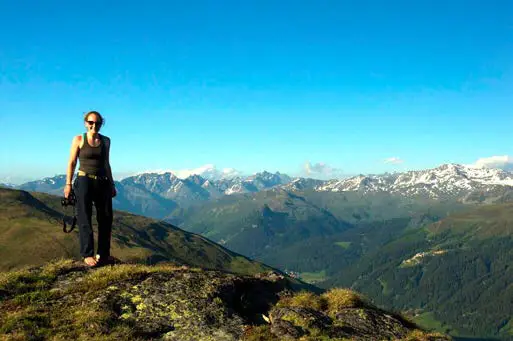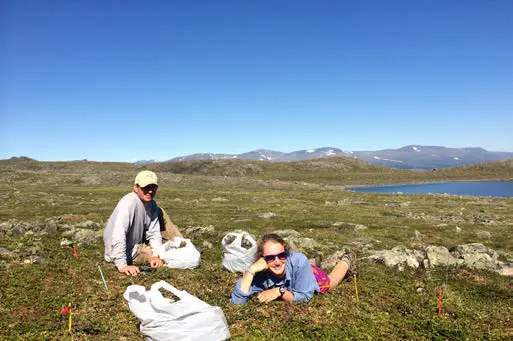Environmental Science of the Arctic – Kenna Rewcastle

With help from the College Scholars Program in the form of the Alvin Nielsen Scholarship, I was able to spend four months in Copenhagen, Denmark, participating in a program of study focused on “Environmental Science of the Arctic”. As part of this program, my class traveled to Northern Denmark where we drilled a sediment core from a semi-coastal bog and analyzed this lake sediment for information on sea level changes at the end of the last glacial period as ice sheets retreated from the Scandinavian region. We also traveled to Iceland to investigate the influence of climate change on the development of human settlement in Iceland and Greenland. Glacier dynamics with global warming and climate change, geothermal energy, and volcanic activity were also studied in depth as part of this study tour.

Following the semester, I was an intern at the Center for Macroecology, Evolution, and Climate at Copenhagen University where I worked with Dr. Aimée Classen to complete literature reviews and assisted her in gathering metadata for proposed sites in a climate change study. I then traveled to Davos, Switzerland, where I helped establish a project that will investigate the impact of climate change on carbon flux in mountain ecosystems. After my two weeks in Switzerland, I traveled to Abisko, Sweden, a very small village in Northern Sweden (within the Arctic Circle) to establish the same climate change study. I then travelled south to Arjeplog, Sweden, to work with David Wardle, one of the most productive ecologists in the world, in maintaining his 20 year experiment on a series of lake islands where he and his colleagues are investigating the effects of ecosystem retrogression (the slowing of ecosystem processes) in the absence of disturbance.
I consider my 7 months abroad to be pivotal in my undergraduate education. I gained experience establishing and maintaining sophisticated, large scale ecological studies, had the opportunity to interact with world-renowned scientists, and was immersed in not only the culture of the places I visited, but in the cultural idiosyncrasies apparent in the way different cultures do science around the world. As a result, I have applied for a Fulbright Fellowship to work with a collaborator that I met in Sweden and have narrowed down my interests within the realm of ecosystem ecology to pursue in graduate school and beyond.